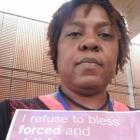"When you go to war against your enemies and God, your God, gives you victory and you take prisoners, and then you notice among the prisoners of war a good-looking woman whom you find attractive and would like to marry, this is what you do: Take her home; have her trim her hair, cut her nails, and discard the clothes she was wearing when captured. She is then to stay in your home for a full month, mourning her father and mother. Then you may go to bed with her as husband and wife. If it turns out you don’t like her, you must let her go and live wherever she wishes. But you can’t sell her or use her as a slave since you’ve humiliated her."
Deuteronomy 21:10-14
Do you find anything inherently wrong with the passage above? Does it speak for you? How might we change that narrative?
Despite seeming to have left some practices and principles of Hebrew canonical literature behind, some things remain indelibly imprinted on the fabric of Judeo-Christian and even secular societies during and in the aftermath of war. One such is the preponderance of sexual and gender-based violence. In many spaces where methodologies have changed, it has been for worse rather than better. In most contexts where men and women go to war, rape is an unwelcome, but totally expected by-product. The same holds for civil wars or internal conflict. There are countless horror stories of ‘outcast,’ sometimes ‘orphaned’ and unwanted children who have no space to call home - they are unwelcome in the country of their birth as well as the country of their other parent’s (the enemy/conqueror’s) nationality. This causes one to wonder whether in the act of vengeance, violence, reprisals etc., the filter that safeguards integrity and regard for the humanity of the other disappears.
“Conflict-related sexual violence” is understood as “rape, sexual slavery, forced prostitution, forced pregnancy, forced abortion, enforced sterilization, forced marriage and any other form of sexual violence of comparable gravity perpetrated against women, men, girls or boys that is directly or indirectly linked to a conflict.” The term also encompasses trafficking in persons when committed in situations of conflict for the purpose of sexual violence or exploitation.’[1] Having ratified the Security Council Resolution 1820 to condemn sexual violence as a tactic of war and a threat to peacebuilding on 19 June 2008, it took another seven years to designate 19 June as the International Day for the Elimination of Sexual Violence in Conflict. Recognition raises awareness of the URGENT need to:
- end conflict-related sexual violence,
- honour the victims and survivors of sexual violence around the world and
- pay tribute to all those who have courageously devoted their lives to and lost their lives in standing up for the eradication of these crimes.
Tensions are escalating in many countries around the world. The South Sudan Council of Churches invites each of us to take a stand on behalf of our siblings whose lives are under threat in spaces of war and violence. Today, as we observe Thursdays in Black, I pray that we will also speak out for those victimized in spaces of conflict, especially those who still withstand the worst of the trauma and the stigma. Let us explore ways in which we can be in solidarity. Tomorrow, let us to speak out, say a prayer, make representation on behalf of all peoples caught in conflict zones, in Africa, Asia, the entire world, so that the sexual abuse and the unchecked, unnecessary violence may be a thing of the past. We MUST advocate for a change in the narrative that endorses the abuse of persons trapped in situations of conflict in our church and society.
[1] https://www.un.org/en/observances/end-sexual-violence-in-conflict-day
